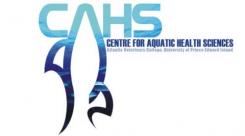
The Centre for Aquatic Health Sciences is pleased to announce that the OIE World Assembly recently approved a combined proposal between the Atlantic Veterinary College at UPEI and the National Veterinary Institute in Oslo, Norway for a new OIE Collaborating Centre.
The new centre will formalize a network of experts and extend knowledge and expertise to OIE and member countries for solving health challenges in aquatic species using evidence-based investigation and epidemiologic techniques.
The initiative was lead by AVC Centre for Aquatic Health Sciences and is supported by the AVC Lobster Science Centre, AVC Shellfish Research Group, and Centre for Veterinary Epidemiology Research. The initiative also involves individuals from BC Centre for Aquatic Health Sciences, Canadian Food Inspection Agency and Dept of Fisheries and Oceans, Centre for Coastal Health, and Idaho State University.
AVC is a world leading institution in epidemiology of aquatic food animals, a status recently confirmed and enhanced by the addition of the Canada Excellence Research Chair award of $10M over 7 years. The College has demonstrated expertise and established infrastructure to devise creative solutions for evidence-based health management decisions in aquaculture. CCAERA will incorporate a network of epidemiologists and research scientists from aquatic health disciplines (finfish, mollusk, and crustacean) whose backgrounds include quantitative epidemiology, biostatistics, epi-informatics, health management research, ecosystem health specialists, and clinical investigators.
The specific areas of focus for OIE Collaborating Centre for Epidemiology and Risk Assessment of Aquatic Animal Diseases include evidence-based health management utilizing epidemiology for aquatic health, training (producer & scientist), research (investigations interacting with local vets/producers), and service (supporting policy for farmer & government). The following areas are central to the applied research and training plans of CCERAAD: outbreak investigations and risk factor studies, surveillance and diagnostic test evaluation, disease control and clinical field trials, quantitative analytic support for regional and national/international research, decision support tools to deliver evidence-based outcomes to all levels of policy makers, and training of experts in aquatic epidemiology and evidence-based health management.